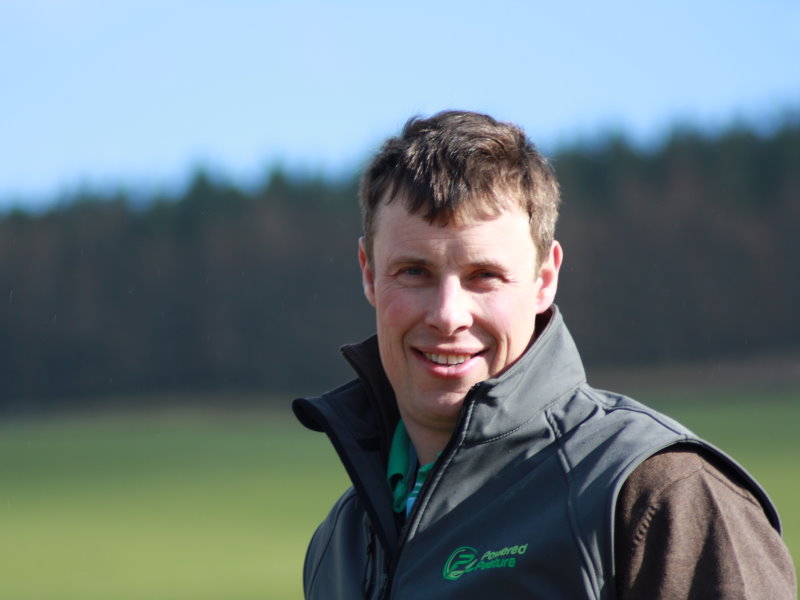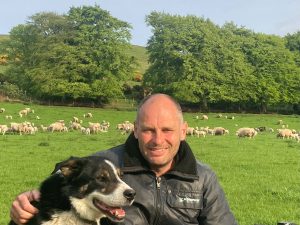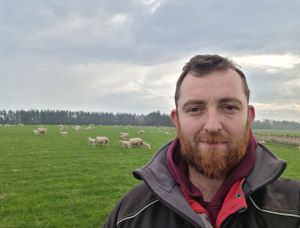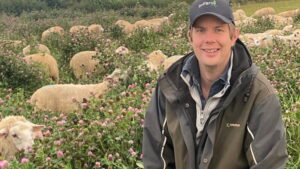Introducing Innovis genetics to a Blackface flock managed in a regenerative system has so far led to a 15% increase in output for Alex Brewster. “I’m focused on developing a resilient, multi-purpose flock delivering quality lamb that offers an eating experience together with decent fibre for clothing. Breeding a composite is providing a solution.
“Six years ago we introduced the Aberfield as an outcross to the Blackface. We then crossed what we call the resulting Aberfaces to the Cheviot and I’m now considering introducing a fourth breed, the Highlander,” he explains. “The flock outwinters, scans an average 150%, we lamb outdoors over three weeks with 80% complete within 14 days, ewes and lambs are rotationally grazed and we target a ewe to rear 75% of her body weight by 100-day weaning.
“We have a tight grazing window and the vast majority of lambs are off by late August, early September at an average 17 weeks and sold store at 33kg to 34kg. A small volume reach 41kg target finishing weight.”
Why a composite? “I’d done a lot of work selecting for maternal traits in our pure Blackface flock to achieve a performance gain of just 1% year on year,” he explains. “I started to look at flock KPIs in other parts of the world and realised composites brought about improved performance, and Innovis genetics fitted the bill; they were backed by data and I liked the company’s ethos and breeding programme.
“We’ve focused on maternal genetics which are noted for being eight times more valuable in terms of total output than terminal genetics and we’ve achieved our goal breeding a strong sheep that is winter hardy, reasonably prolific and quite self-sufficient, however I think a four-way composite would optimise hybrid vigour and encourage genetic resilience.”
Resilience is something Alex is keen to develop not only within the flock and his complementary suckler herd, but also the land he farms. “I’m trying to balance the two, find out how they gel together,” he says.
His regenerative approach begins in the soil – improving its structure, root depth and the nutrient availability for grass and a growing diversity of plant species. “I believe healthy soil encourages healthy livestock. I’m growing high quality plants for our sheep managed both in rotational and mob grazing systems, without fertiliser requirements. Furthermore, I’m aware there’s been excessive use of chemicals including drenches, and they’re having an environmental impact. Added to that I believe poorer sheep are more prone to pest attack and disease.
“However, we are starting to achieve a win win situation with our flock that is thriving outdoors on improved quality grazing and which I believe in turn is demonstrating better health including greater resistance to parasites, together with overall enhanced performance. Innovis genetics have a significant role to play.”



